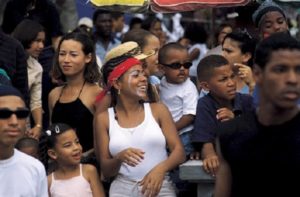The World Bank board of executive directors last week approved a new project for the Dominican Republic worth US$75 million, which seeks to ensure that thousands of citizens gain access to a comprehensive social protection package and help reduce extreme poverty in the country’s poorest provinces.
This will not only increase access to the national health insurance (SeNaSa, in Spanish) and education to the most vulnerable, but will also increase their employability skills and enable basic improvements to housing.
“Because I believe in strengthening an inclusive and reliable social protection system that has ample coverage and equity, I once again commit to broadening the interventions we have boosted in the last decade with the Progresando Program, helping many families out of poverty. Now this is integrated with the Solidaridad Program that uses Conditional Cash Transfers as a key to enter the households to work in developing human and social capital, with greater emphasis on employability, housing improvement, citizen culture and complementarities with the national health insurance,” said Margarita Cedeño de Fernandez, vice president of the Dominican Republic and the country’s social policy cabinet coordinator.
Although the Dominican Republic grew at an annual average rate of 6.7 percent over the last decade, making it one of the best performing countries in the Latin America and the Caribbean region, poverty and inequality continue to represent a challenge. Around 46 percent of all rural Dominicans live in poverty, women being the most affected.
“This project tries to provide equal opportunities to all Dominicans, strengthening existing safety nets and facilitating the employability of the most vulnerable people, with a particular focus on young women and men,” said Sophie Sirtaine, World Bank director for the Caribbean. “It also helps strengthen the targeting system and scales up an innovative system of citizen reports for more efficiency and transparency in the social protection system.”
The project supports the DR’s social policy cabinet through several government agencies, including the National Institute of Technical and Vocational Training (INFOTEP in Spanish), the subsidized health system (SeNaSa), and the ministry of education.
The 14 provinces to be selected are: Elias Piña, San Juan de la Maguana, Distrito Nacional, Baoruco, Barahona, Independencia, Azua, San Cristóbal, Pedernales, El Seibo, Santiago, Monte Cristi, Santo Domingo and Monte Plata.
Read more at Caribbean News Now


